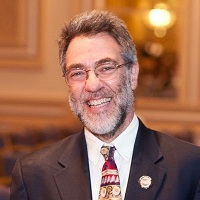 William Hersh, MD, Professor and Chair, OHSU
William Hersh, MD, Professor and Chair, OHSU
Blog: Informatics Professor
Twitter: @williamhersh
As the frequency of my postings in this blog has declined in recent years, I have noted several times that the blog started in the frenzied early days of the Health Information Technology for Economic & Clinical Health (HITECH) Act, which was part of the American Recovery and Reinvestment Act (ARRA) and that was instituted in an attempt to blunt the Great Recession of 2008. HITECH was part of ARRA, and of course gave us the big investment that has greatly expanded the adoption of electronic health records (EHRs). A small part of HITECH included investment to build the capacity of the health IT workforce.
Now, of course, we are headed into new economic recessionary times due to SARS-CoV-2, also known as Covid-19 as well as the Novel Coronavirus. Will this be ARRA 2.0?
Before I say anything about reactions to SARS-CoV-2, let me clearly state my sorrow for those most directly affected. Obviously the most sorrow is for those whose lives have been directly impacted by the disease it is causing and also by the disease’s impact on their loved ones. There is also sorrow for what is happening to those whose lives are otherwise substantially affected, with threats to their livelihoods or other aspects of their ability to obtain food, shelter, and health care. There is also the impact for those on the front lines, of course in healthcare settings, but also in public safety, grocery stores, and other places of “essential” work. And to a lesser extent the rest of us, obviously minuscule compared to those directly impacted, but with major alterations to our daily lives.
With sorrow does come some opportunity for gratitude. While this is clearly impacting my life, at the end of the day, what I hold most dear – family, friends, and colleagues – are all still there and appreciated for their presence and support. We also owe gratitude for the global Internet, which enables us to keep connected by email, social media, and perhaps most importantly, videoconferencing. A decade ago, the bandwidth and reach of the Internet would not have allowed this level of connection. I am also grateful for my knowledge and experience in online teaching, and how I might put it to work keeping students and faculty connected during these trying times. The latter will likely be a major part of my work effort going forward.
I am certain I will much more to write about in the days ahead. While I had not hoped it would take a crisis to revitalize my blog, it will no doubt do so.
SARS-CoV-2: How Can I Help?
When the history of the global SARS-CoV-2 pandemic is written, the real heroes will be the frontline workers who cared for those in need and/or kept society functioning. This of course includes healthcare workers but also those working as first-responders and in public safety, or in grocery stores, gas stations, telecommunications infrastructure companies, and other essential businesses. They will certainly come off looking much better than political leaders or even “captains” of industry. I hope that whatever economic recovery plan is implemented that these workers will be appropriately rewarded and that society will have a better appreciation for the essential jobs they do. Continue reading.
Keeping Evidence-Based in the Midst of a Pandemic
The Covid-19 pandemic requires urgent scientific knowledge about how to best diagnose, treat, and prevent the spread of the SARS-CoV-2 virus. This is at odds with the deliberate nature of evidence-based medicine (EBM), where it is important to use more deliberate methods to discern the best evidence.
Another challenge is to disseminate the results of research as quickly as possible. The availability of preprint servers and other modern Internet tools allow us to publish first and peer review later. But of course that raises worry that inadvertent error or even deliberate falsehoods might taint the quickly expanding evidence base. Continue reading.
These articles first appeared on The Informatics Professor. Dr. Hersh is a frequent contributing expert to HealthIT Answers.
